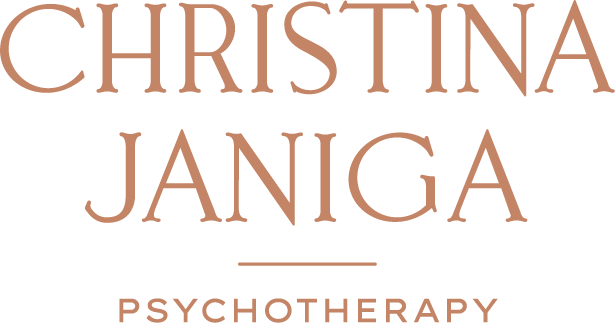Deep Brain Reorienting (DBR) in Burlington & Online Across Ontario/Canada
Providing Psychotherapy and Counselling and Deep Brain Reorienting (DBR) services for trauma, PTSD, and anxiety, in person at our office in Burlington and virtually online across Ontario and/or Canada (depending on your province’s regulations).
DBR is a gentle, body-based therapy for trauma, attachment wounds, and emotional distress.
Maybe you are feeling overwhelmed with the idea of processing past or current trauma, with the fear of too many emotions flooding in at once and you know that panic will take over. You know you are avoiding the work you want to do in therapy. Both the mental and emotional load feels too heavy and overwhelming to even think of going through all your past hurts, wounds, and pain.
Daily, you struggle with overwhelm and confusion on where these flooding emotions come from even when you apply all the coping strategies you’ve learned.
You may know where your triggers stem from, be it from past trauma or childhood adverse experiences. But knowing where to begin feels like way too much to do that it’s easier to simply struggle daily with the PTSD symptoms. You do your best to numb the symptoms with coping strategies that you struggle doing even on a good day. Memories sometimes flood regardless of the years of trying to build blocks, walls, and defences to put those memories to rest.
No matter what happened in your childhood, daily struggles are showing up in your life, and you are at a point where you are looking for help in managing and finding relief from your symptoms and triggers.
You want to feel calmer with a clearer mindset and a good handle on your emotions so that you can live a happier and more fulfilling life.
Developed by psychiatrist Dr. Frank Corrigan, Deep Brain Reorienting (DBR) is a cutting-edge trauma therapy that works with the brainstem to address the physiological origin of trauma responses. Unlike talk therapy, DBR helps resolve the shock, fear, and emotional overwhelm stored deep in the nervous system.
You are tired of feeling overwhelm and panic.
DBR Therapy with our team at Christina Janiga Psychotherapy helps you:
- Understand the differences between shock and affect (emotions) that is targeted in this brain-based therapy
- From a neurodiversity-affirming perspective learn the underpinning brainstem function in feelings of overwhelm, confusion, and panic.
- Find relief in both physical and emotional symptoms without the overwhelm taking over.
- Effectively process the distressing experiences from the past by accessing the distress "files" from daily difficulties - no need to identify those traumatic memories.
- You will see the type of results you had hoped from traditional talk based therapies much more quickly - even check out the current double blind research coming from Ruth Lanius and her team in London Ontario!
What is DBR therapy?
DBR is a somatic modality and brain-based therapy that is intended to help individuals who are experiencing symptoms of PTSD, overwhelm, and panic that stem from flooding emotions. By utilizing DBR as part of the treatment plan, individuals can work through their daily distress and link to past experiences in a gentle approach that releases the shock from the body before accessing the affect/emotions. By doing this, emotions aren’t as overwhelming and feels much more manageable to feel and work through. New perspectives and adaptive shifts are subtle (at first), and overtime have a significant impact on sense of increased confidence, improved overall feeling of calm, and a new reclaimed purpose and joy in life.
- DBR focuses on the brainstem, where automatic reflexes of shock are triggered (before the survival responses like fight, flight, or freeze).
- Trauma often leaves behind layers of fear, shame, and shock that traditional talk therapy cannot fully reach.
- By gently slowing down awareness of body sensations, DBR helps individual process traumatic memory pathways without becoming overwhelmed.
- This method promotes deep, lasting healing for trauma, attachment wounds, dissociation, and complex-PTSD.
You will benefit from DBR psychotherapy if:
You are tired of feeling panic and overwhelm with daily triggers and stressors
You want to find the courage to understand and face your fears
You feel burn out from the chronic stress in your professional world and/or daily life
Other talk based therapies haven’t addressed the route traumas or past adverse childhood experiences and you are ready to try alternate deep brain-based, somatic therapy.
There are certain situations where you might not be ready for psychotherapy sessions with Christina Janiga Psychotherapy. These situations include, but are not limited to:
Instances of severe mental illness
Ongoing difficulties with substance abuse
If you are currently experiencing a severe mental illness, we recommend you seek outpatient services at a local program within your community. Please see our Resources Page for links to local supports within the Burlington, Halton Region, and across Ontario.
What can DBR therapy help with?
- Childhood trauma and attachment wounds
- PTSD and Complex PTSD
- Dissociation and emotional shutdown
- Chronic shame and self-criticism
- Abandonment wounds
- Anxiety, depression, and emotional overwhelm
- Relationship and trust difficulties
Research & Evidence
DBR is an emerging, research-supported therapy.
- Dr. Frank Corrigan, the founder of DBR, has published extensively on the neurobiology of trauma and healing.
- Dr. Ruth Lanius, a leading Canadian researcher in trauma neuroscience, has collaborated on DBR research and its clinical applications.
📖 Read Frank Corrigan’s DBR research
📖 Explore Ruth Lanius’ publications on trauma and the brain📖 Explore Ruth Lanius’ publications on trauma and the brain
📖 A randomized controlled trial of Deep Brain Reorienting: a neuroscientifically guided treatment for post-traumatic stress disorder
DBR Therapy helps you feel the "feels" without the overwhelm or panic.
Who We Work With
We provide DBR therapy to adults (18+):
- Locally in Burlington, Ontario (in-person sessions)
- Across Canada (virtual sessions available in Ontario, Alberta, British Columbia, Nova Scotia, and other provinces depending on licensing/insurance requirements)
👉 If you live outside Ontario, please contact us to discuss availability.
Our team at Christina Janiga Psychotherapy has extensive experience in helping people overcome distress from past or current trauma and adverse childhood experiences and find relief from symptoms of PTSD, overwhelm, anxiety, and panic. We offer a range of evidence-based treatment approaches, including talk-based psychotherapies and brain-based psychotherapies such as EMDR, DBR, and Brainspotting to help you manage your distress and live a more fulfilling life.
We understand that seeking help for symptoms of PTSD, overwhelm, panic, and trauma can be intimidating, and we are here to make the process as easy and comfortable as possible for you.
Our therapists are warm, compassionate, and non-judgmental, and we are committed to creating a safe and supportive environment for you to explore your thoughts and feelings.
If you are ready to take the first step towards overcoming your anxiety and living a more restful and happier life, we invite you to contact us to schedule an appointment.
Our team is here to support you on your journey towards building more confidence, overcoming anxiety, and finding relief from your symptoms.
Meet Our DBR Therapists
YOUR NEXT STEPS
Counselling is meant to help you ease your PTSD symptoms and reclaim your enjoyment in daily life. Together, you and your therapist will set goals to reduce your sense of overwhelm and panic from flooding emotions. You will find the most effective coping strategies that work best for you.
Book a free 15 minuted consultation call.
If you are interested in seeking therapy to help you overcome PTSD, trauma, overwhelm and panic, we encourage you to reach out to us for a free 15-minute consultation. During the consultation, we will answer any questions you have about our practice and our psychotherapists, and help you determine if we are the right fit for you. We believe that feeling comfortable with your therapist is essential for a successful therapeutic relationship.
Invest in your healing.
Investing in yourself is an important step towards finding the happiness and fulfillment you deserve. By seeking therapy and working with a trained professional, you can get to the root of the problems you are experiencing and find solutions that are tailored to your unique needs and goals. Together, you and your therapist will work on healing old wounds and developing healthy coping strategies to help you move forward in a way that feels authentic and fulfilling.
During this initial 90 minute session, you will meet with your therapist to define the psychotherapy relationship and discuss the details of informed consent.
Your therapist will gather information about you and your biological, psychological, and social history and how this is impacting your current situation. Together you will define the goals you have going forward.
Fees vary between therapists.
Commit to at least to 8 weekly 50-90-minute sessions (either in person at our Burlington office or virtually online across Ontario).
Research from Ruth Lanius and her team in London, Ontario demonstrate that over a course of DBR treatment of 8 weekly sessions significantly decreased the treatment groups symptoms of PTSD. Learn more about the research here.
Fees vary between therapists.
Frequently Asked Questions About DBR
Both therapies help resolve trauma, but DBR works at the brainstem level with the earliest survival responses, while EMDR primarily processes traumatic memories through eye movements and cognitive shifts. When there is too much overwhelm in EMDR therapy processing we tend to shift to DBR therapy.
Yes. DBR is supported by peer-reviewed research led by Dr. Frank Corrigan and Dr. Ruth Lanius. It is considered an emerging trauma treatment with promising clinical outcomes.
DBR is a gentle, slower-paced therapy. Some clients notice changes after several sessions, while others benefit from longer-term support. Research demonstrated improvement after 8 session that were 90 minutes each.
Yes. DBR can be effectively delivered virtually. We currently offer online sessions across Ontario and other Canadian provinces (depending on local regulations and insurance coverage).
Most extended health insurance plans cover sessions with a Registered Psychotherapist in Ontario. If you’re out-of-province, check your plan to confirm coverage for psychotherapy. DBR is a somatic modality that is provided through a psychotherapeutic relationship.
Unlike classic talk therapy which focuses mainly on cognition and remembering, or exposure therapies which often require direct confrontation with traumatic memories, DBR emphasizes nonverbal body sensations (orienting tension, shock, etc.) and works gently from the bottom up. It aims to reduce the risk of overwhelm by first attending to what the body holds.
Sessions typically begin with settling/grounding in the “Where Self”, then activating a stimulus or distressing moment, identifying an orienting tension (OT) (tension in the forehead, around the eyes, or at the base of the skull), then tracking and noticing the subtle bodily sensations or pre-affective shock, then moving toward affective activation as safety allows, and integrating through closure. Each session lasts ~50 to 90 minutes; 8 weekly sessions are standard.
According to recent RCTs (2023) by Ruth Lanius, Frank Corrigan, et al., clients showed statistically significant reductions in PTSD symptoms after 8 weekly DBR sessions. At follow-up (3 months) many maintained improvements, including symptom reduction and improved sense of safety and integration.
DBR is suited for those with PTSD, overwhelm, panic, dissociation, or unresolved attachment trauma; especially if traditional therapies haven’t fully addressed symptoms. If someone is experiencing untreated severe mental illness (e.g. acute psychosis), active substance misuse, or lacks grounding/coping resources, stabilization work may be needed first.
When done by a trained therapist, DBR is designed to move slowly, using somatic awareness, to minimize overwhelm. There are safety protocols: grounding, pausing when needed, directing to pre-affective shock, and pacing the affect. It isn’t about reliving the trauma, it’s about releasing the trapped energy in the body.
If you experience flooding emotions, overwhelm with talk therapy, or feel stuck in patterns of panic or shock without understanding why, DBR may be a good fit. Also useful when trauma therapy has been attempted but residual symptoms remain. Consultation helps clarify fit.
Secure Services
Christina Janiga and associated employees of Christina Janiga Psychotherapy offer virtual psychotherapy and couselling sessions through secure, Canada-based software called JaneVideo. JaneVideo is a secure and encrypted online video platform that meets all of Canada’s privacy requirements and laws.
For more information, please see the privacy policies of Jane.


